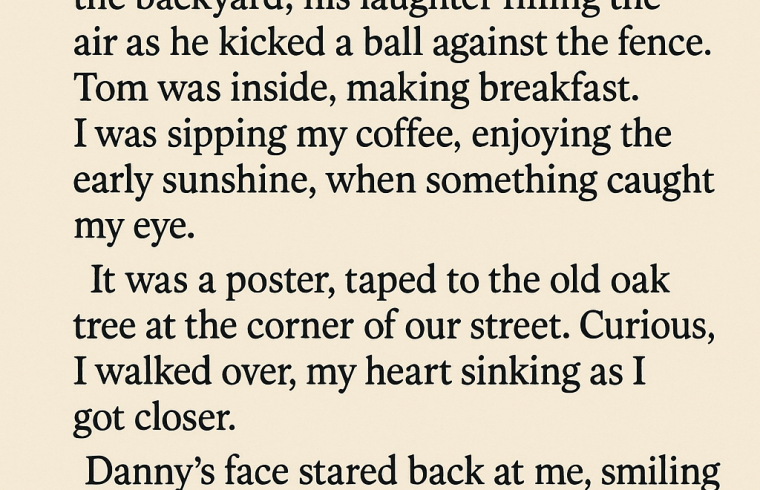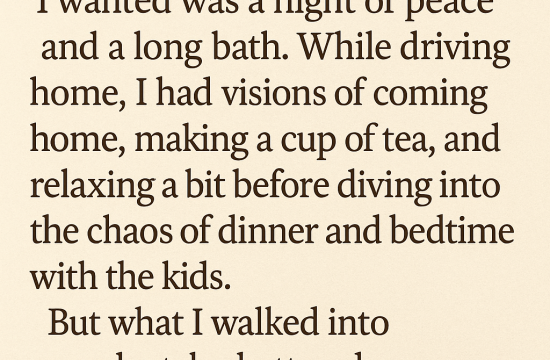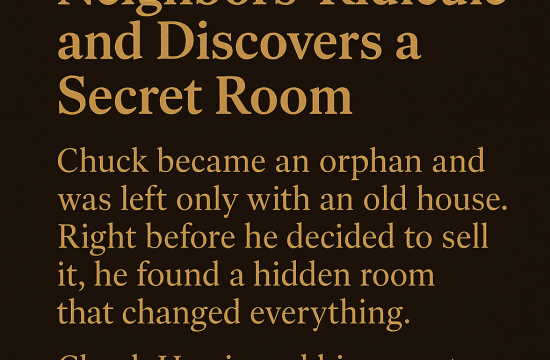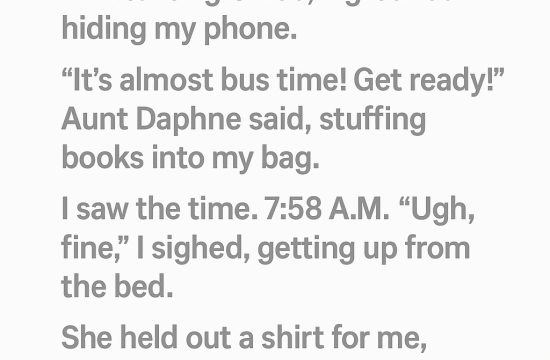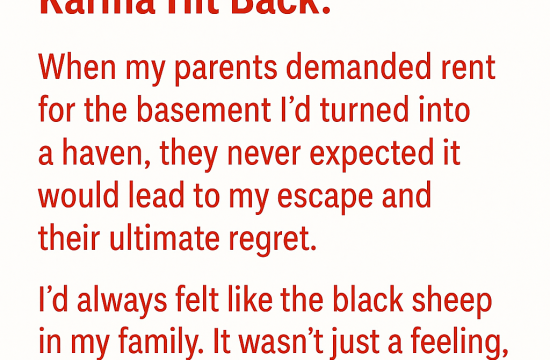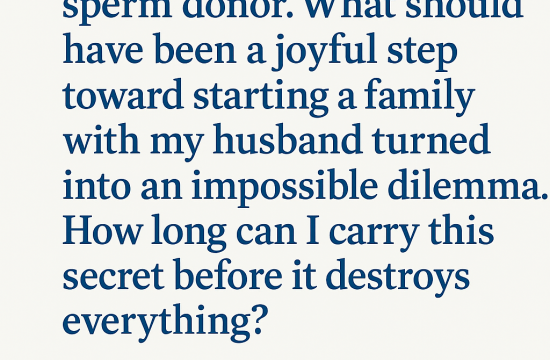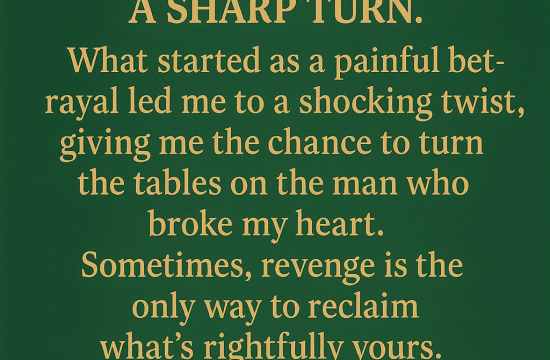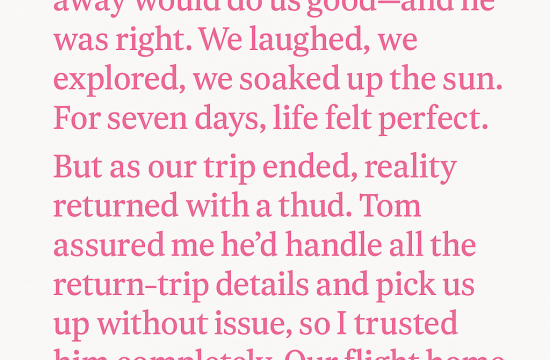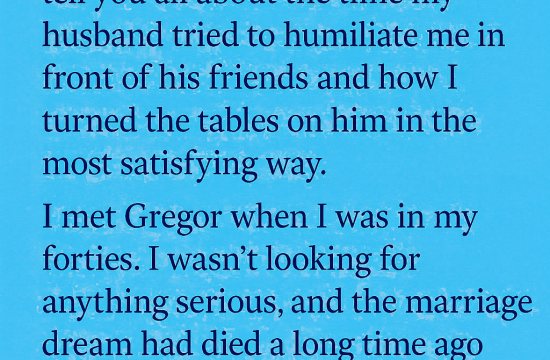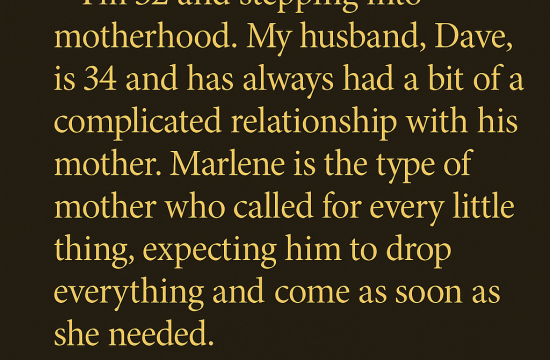When I saw the poster with my son’s name and face, a chill ran down my spine. Little did I know that calling the number on it would uncover secrets, ignite tempers, and lead to a neighborhood reckoning none of us would ever forget.
I remember the morning vividly. Danny was five, kicking a ball against the fence, his giggles ringing through the yard. Tom, my husband, was in the kitchen flipping pancakes, and I was standing on the porch, coffee in hand, soaking in the sunshine—when something caught my eye.
A poster fluttered against the old oak at the corner of our street. I walked over, curiosity quickly turning to dread. Danny’s face stared back at me, the very photo I’d posted on Facebook last week—his wide grin, his messy hair. Above it, in bold black letters:
“BEWARE OF THE DOG!”
My heart dropped.
Underneath, in harsh red ink: “Screams. Runs. Disrespects elders. Dangerous.”
I couldn’t breathe. My hands trembled as I tore the poster down. Who would do this? Who would publicly humiliate my child?
I stormed back inside. “Tom!” I cried, shoving the paper at him.
He scanned it, jaw tightening. “What is this? Who’d do something like this?”
Only one name came to mind—Helen, our sixty‑year‑old neighbor. She’d scowled at Danny’s noise for months, complained about his ball landing in her yard, muttered under her breath whenever she thought we couldn’t hear.
“It’s Helen,” I said, my voice shaking with fury.
Tom hesitated. “Are you sure? She’s cranky, but this?”
“Who else would do something so cruel?” I shot back. My hands clenched around the crumpled poster.
Before confronting her, I called the number on the flyer. A robotic voice answered, cold and distant, telling me to leave a message. My stomach churned. This was more than petty annoyance—this was targeted.
Fueled by anger, I marched straight to Helen’s house and pounded on the door. When she finally opened it, her brows drew together in irritation.
“Amy, what on earth—”
I held up the poster like a weapon. “This. Did you do this?”
Her eyes flicked to the paper, widening for a second before narrowing. “I don’t know what you’re talking about.”
“Don’t you dare lie to me,” I snapped. “You’ve complained about Danny before, but this? Publicly shaming a child?”
Her lips pressed into a thin line. “You don’t understand. He’s always screaming, always in my yard. I moved here for peace, Amy. Peace!”
“And this is your solution?” I demanded. “To call him dangerous?”
Helen’s cheeks flushed. For a long moment, neither of us spoke. Then she exhaled sharply. “I didn’t mean to hurt him. I just wanted some quiet.”
“You had no right,” I said, voice low. “You should have talked to us.”
By now, our shouting had drawn a small crowd. Mrs. Jenkins from across the street gasped as I handed her the flyer. “Oh, Helen, how could you?”
But Mr. Patel shook his head. “Danny is loud sometimes. Helen has a point.”
The street buzzed with whispers, a line forming between those who defended Helen and those who stood with us. Tom arrived, stepping between us. “Enough. We’re not solving this here. Let’s meet tonight—our backyard. Everyone.”
By dusk, our yard was filled with folding chairs, murmurs, and tension. Danny’s swing set loomed like a silent witness.
I spoke first. “This isn’t just about Danny. It’s about how we live together. We can’t let this tear us apart.”
Helen folded her arms, defensive. “I just want to enjoy my home without constant noise.”
Tom nodded. “And that’s fair. But this flyer was wrong. We need to handle things better.”
Voices rose and fell. Mrs. Jenkins spoke about compassion and community. Mr. Patel pushed for quieter hours. Then James, a soft‑spoken neighbor, stood.
“I went through this,” he said. “Years ago, kids next door drove me mad. But after a talk, we set boundaries. We compromised. And you know what? Those kids became like family.”
Silence fell. Helen’s eyes softened, her hands twisting in her lap. “I never wanted to hurt him,” she whispered. “I lost my son years ago. He… he would’ve been Danny’s age now. I hear him in that boy’s laughter, and it hurts. I didn’t know what to do with that.”
A lump rose in my throat. The anger inside me ebbed, replaced by something else—understanding.
I took a step toward her. “Helen… I didn’t know.”
She shook her head, tears brimming. “I’m sorry.”
“We can work this out,” I said gently. “Quiet hours, agreed playtimes. Let’s try, together.”
One by one, neighbors nodded. The tension dissolved into plans, compromises, even tentative smiles. Helen wiped her cheeks and managed a small laugh. “Maybe I can help Danny plant some flowers by the fence. Keep him busy.”
In the days that followed, we drafted simple guidelines for noise and play. Helen and Danny spent an afternoon together in her garden, their laughter mingling with birdsong.
Then, a letter appeared in my mailbox. Inside was Helen’s photo as a young mother, holding a boy with the same mischievous grin as Danny. The note was brief but heartfelt:
Thank you for seeing me. I’m sorry I let my grief hurt you. Danny reminds me that joy still lives here. —Helen
I stood on the porch, tears in my eyes, watching Danny kick his ball again—this time with Helen standing at the fence, smiling.
What would you have done?

